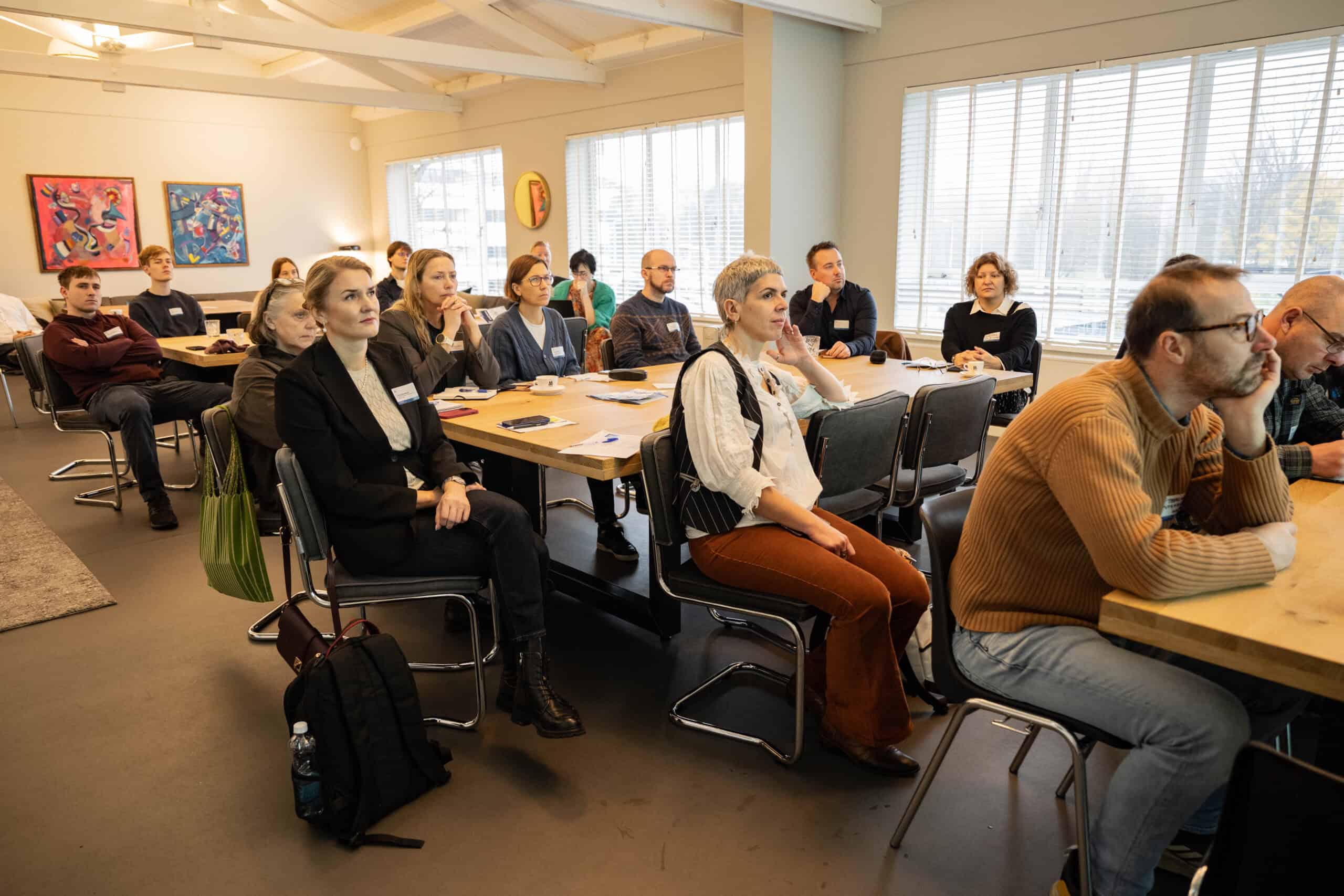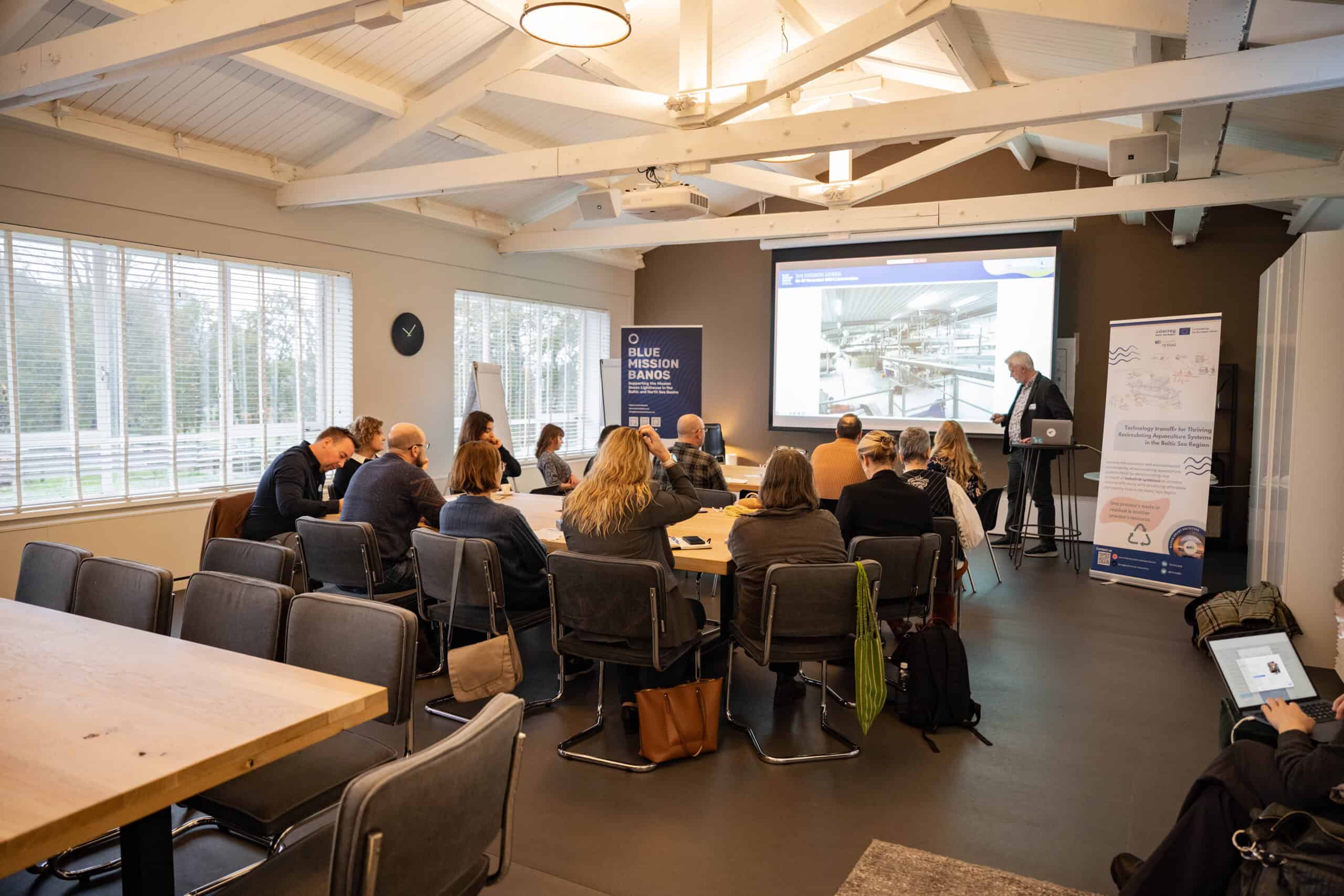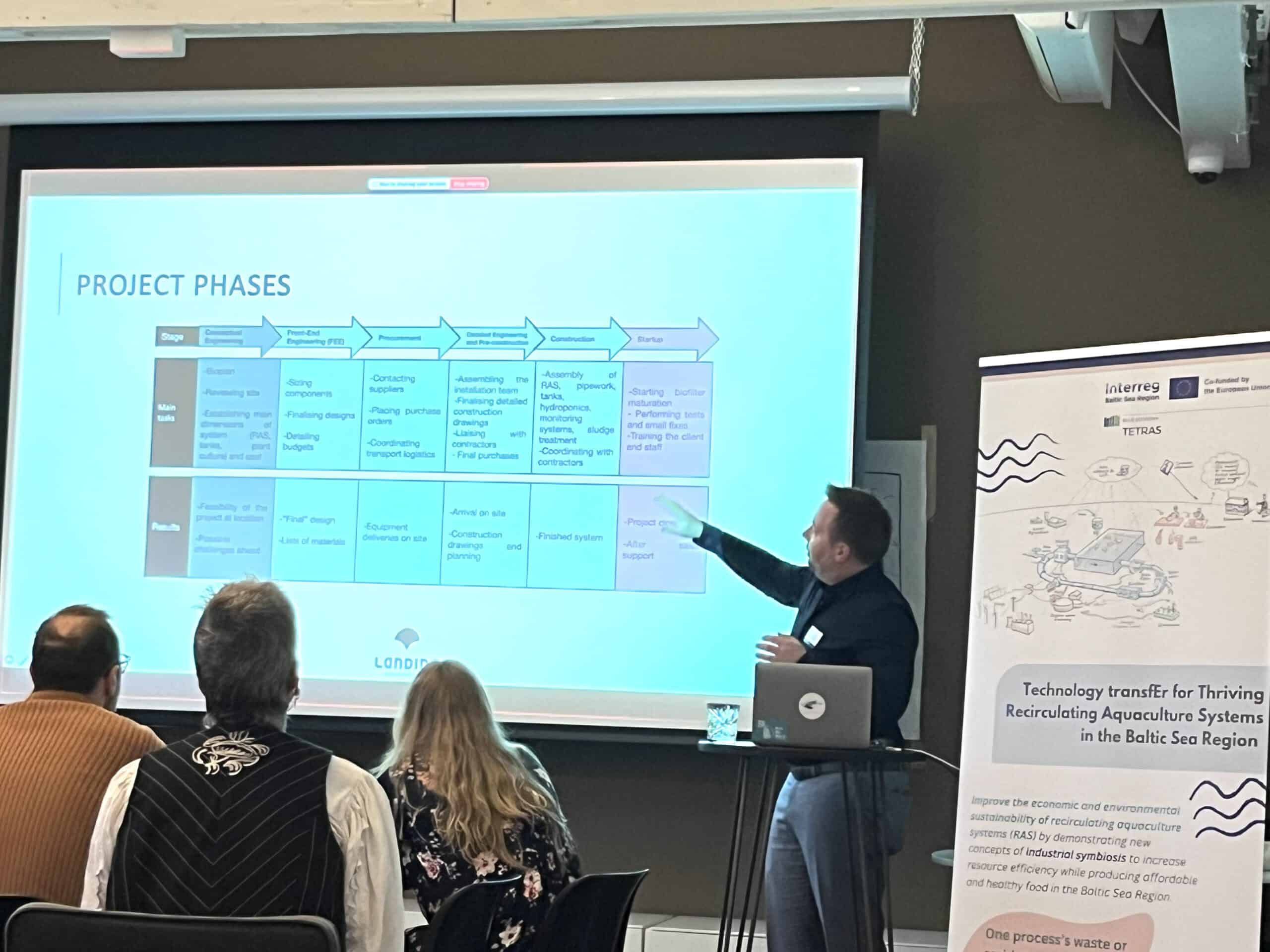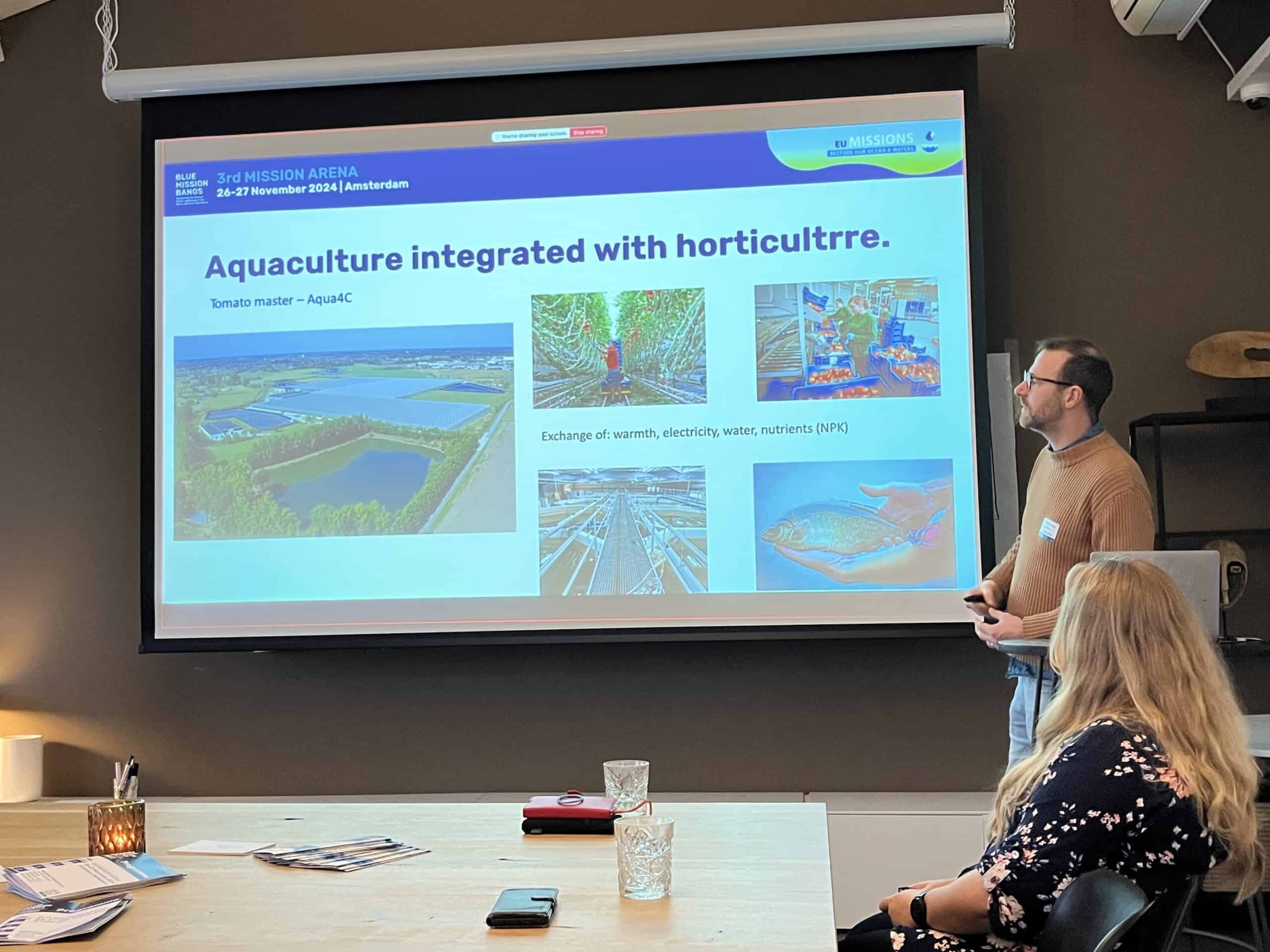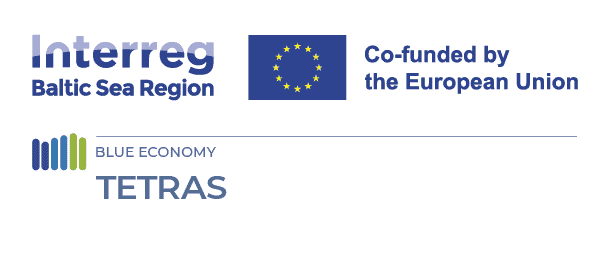
Breaking Barriers: Challenges and Opportunities in Recirculating Aquaculture Systems
12 December 2024
More than 300 participants from the North Sea region and beyond convened in Amsterdam on November 26-27 for the Blue Mission BANOS Mission Arena 3. The event served as a platform to tackle critical issues in the blue economy, including multi-use of space, mariparks, smart sea and security, blue bio-resources, marine protection, and marine energy production.
The blue economy is vital for ensuring a sustainable future in the Baltic and North Sea (BANOS) regions. From fisheries and aquaculture to shipping and renewable energy, marine and aquatic resources are essential for driving economic growth, fostering innovation, and promoting environmental responsibility.
Central to these efforts is the BlueMissionBANOS initiative, which aims to build a carbon-neutral, circular blue economy by bringing together policymakers, industry leaders, scientists, and the public. By addressing key environmental challenges, the initiative seeks to prevent water pollution, restore aquatic ecosystems, and protect biodiversity, setting the stage for a sustainable and resilient future.
At this year’s Mission Arena, TETRAS partners hosted a workshop titled “Feasibility and Beyond: Investing in and Developing Recirculating Aquaculture Systems (RAS).” The session brought together North Sea experts to exchange best practices and address challenges in early RAS development. Key themes included innovative approaches like energy-efficient designs, side-stream optimization, and industrial symbiosis.
Featured speakers included Arne Bækgaard (Denmark), a private consultant; Rob van de Ven (Netherlands), Co-Founder of Landing Aquaculture BV; and Stefan Teerlinck (Belgium), Chairman of the Flemish Aquaculture Platform and Head of Research on aquaculture and insect production at Inagro vzw. Their expertise provided engaging insights into RAS systems.
Arne reflected on the evolution of RAS, focusing on salmon farming and examples like Skagen Salmon, touching on feed, production, and energy use. Rob shared insights on effective RAS system design, highlighting the “Landing Way” approach and common pitfalls in design. Stefan discussed successful and failed case studies in Flanders, emphasizing market dynamics, production costs, and scalability.
The open discussion tackled topics like certification, sustainability, and production planning, underscoring significant interest in RAS despite persisting challenges. Identified barriers included high investment costs, licensing complexity, energy expenses, and a shortage of skilled labor. Effluent water treatment, necessary for circular systems like agriculture, was also highlighted as a critical issue.
The workshop affirmed RAS’s potential to revolutionize sustainable seafood production, with new species like shrimp gaining traction in Europe for their environmental benefits. However, to fully harness this potential, stakeholders must address barriers and make RAS farming an attractive career path for younger generations.
Future Mission Arena Events
Following the 3rd Mission Arena, the BlueMissionBANOS project is set to continue its event series. The upcoming 4th Mission Arena is scheduled for April 28th and 29th, 2025, in Sopot, Poland. These gatherings serve as a nexus for collaboration within the Blue Economy, so save the dates and join us in Sopot!
Stay informed, visit the BlueMissionBANOS
Website: https://bluemissionbanos.eu/events/
Interested in becoming part of the Mission Ocean network? Endorse the Mission Ocean charter here. The process is very simple and allows you to become a member of an active community of projects, organisations, and initiatives working to improve European oceans and waters.
